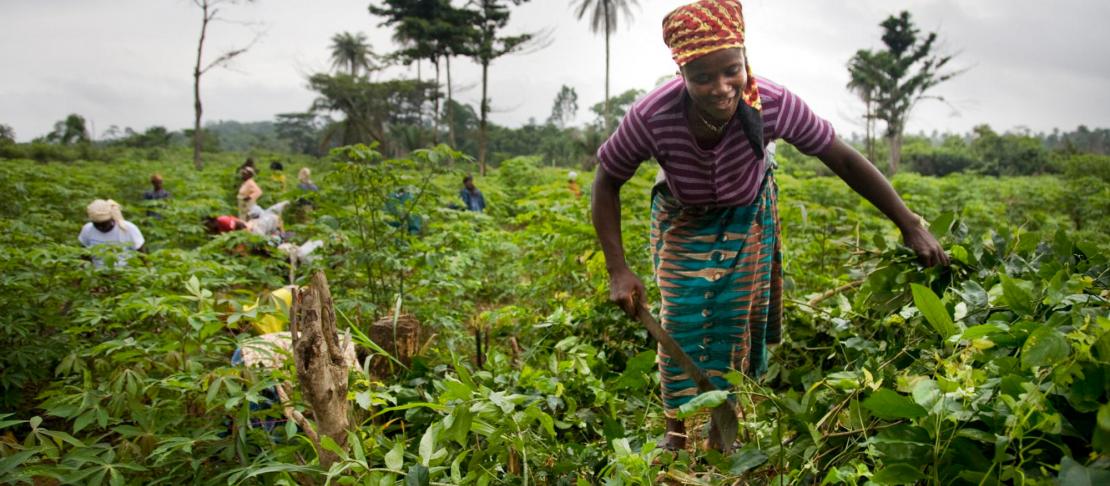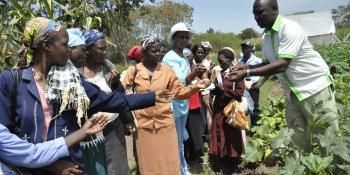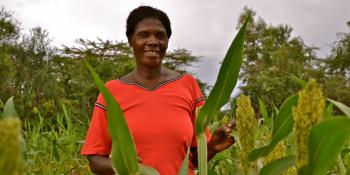Could scenario-building be the tool that links food security science with policy-making?

A study by CCAFS researchers looks at how effective and plausible it is to bring multiple stakeholders with different backgrounds together to share knowledge that could influence food security policies and actions in East Africa.
Bringing people from diverse backgrounds together to discuss possible future scenarios can be an effective tool in developing policies for sustainable development and food security in the face of climate change, but the success of this approach depends on good facilitation, communication and capacity development.
A study by scientists associated with the CGIAR Research Program on Climate Change, Agriculture and Food Security (CCAFS) and published in the journal Regional Environmental Change assesses the effectiveness of the participatory development of regional multi-stakeholder scenarios in bridging boundaries between disciplines and linking knowledge with action.
- See more at: http://blog.worldagroforestry.org/index.php/2013/10/09/visioning-our-fu…
Bringing people from diverse backgrounds together to discuss possible future scenarios can be an effective tool in developing policies for sustainable development and food security in the face of climate change, but the success of this approach depends on good facilitation, communication and capacity development.
A study by scientists associated with the CGIAR Research Program on Climate Change, Agriculture and Food Security (CCAFS) and published in the journal Regional Environmental Change assesses the effectiveness of the participatory development of regional multi-stakeholder scenarios in bridging boundaries between disciplines and linking knowledge with action.
- See more at: http://blog.worldagroforestry.org/index.php/2013/10/09/visioning-our-fu…
Story originally posted on the World Agroforestry blog.
Bringing people from diverse backgrounds together to discuss possible future scenarios can be an effective tool in developing policies for sustainable development and food security in the face of climate change, but the success of this approach depends on good facilitation, communication and capacity development.
A study by scientists associated with the CGIAR Research Program on Climate Change, Agriculture and Food Security (CCAFS) and published in the journal Regional Environmental Change assesses the effectiveness of the participatory development of regional multi-stakeholder scenarios in bridging boundaries between disciplines and linking knowledge with action.
“Representatives from farmers’ organizations, scientists, policymakers, civil society, government and the private sector all have important roles to play in formulating new policies for improved food systems as we enter an increasingly uncertain future,” says Joost Vervoort, CCAFS scenarios leader and an author of the study.
The study was initiated by CCAFS as part of work aimed at ensuring the knowledge generated by its partners, which include the World Agroforestry Centre, will lead to actions such as changes in policies, practices and technologies that improve food security in an environmentally sustainable manner.
Read the rest of this story on the World Agroforestry blog.
Download article: Chaudhury M, Vervoort J, Kristjanson P, Ericksen P, Ainslie A. 2013. Participatory scenarios as a tool to link science and policy on food security under climate change in East Africa. Regional Environmental Change 13 (2): 389-398.
Kate Langford is a consultant writer with close to 20 years’ experience in communicating natural resource, environmental and land management issues for various government and non-government organizations.



